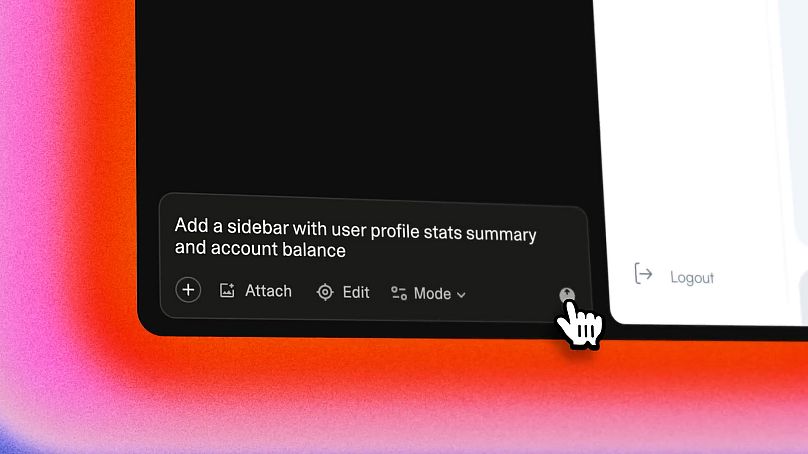Can Lovable, the Swedish vibe coding start-up, become Europe’s first trillion-dollar firm?

In an age where images and texts can be whipped up by a few clicks, a Swedish start-up has swiftly risen as a luminary in vibe coding, or artificial intelligence-powered software building.
Stockholm‑based Lovable chalked up over $100 million (approximately €85 million) in revenue in its first year, and raised one of Europe’s biggest early-stage funding rounds of $200 million (€170 million), valuing the company at about €1.5 billion.
“Lovable is basically any language to [build] your software,” Lovable’s CEO Anton Osika told Euronews Next.
“And it lets you explain what you want to build and then iterate together with AI until you get some application or a website or internal tool that you want to create,” Osika added.
Lovable’s users write prompts to build program prototypes and real products and they don’t have to know how to code.
Its user base is spreading rapidly, with even distribution across Europe, the United States, Asia, and South America.
“It accelerates how quickly you can communicate ideas,” Osika said.
“If you have an idea, you should just build it and then show your colleagues and show your customers, ‘is this something you would like?’, rather than talking about it, writing documents and then over a few months maybe roll out the first version, which was the case in the past,” he added.
Osika mentions a case where a Brazilian ed-tech company, Qconcursos, built a new application using Lovable and generated $3 million (approximately €2.6 million) in revenue in just 48 hours.
What is vibe coding?
Vibe coding is a technique where a developer phrases a concept in text and an AI crafts an app, website or software in return.
The term was coined by OpenAI’s co-founder Andrej Karpathy earlier this year.
Once fully developed, Lovable hopes, the AI agent can even aid non‑specialists in debugging, effectively taking over work previously done by engineers or analysts.
However, Osika believes the role of developers will expand.
“We're going to have much, much more people working as developers because now I think it's possible for anyone to quickly become a developer. That means that the number of people who can work on improving all the poor software experiences that we have around the world is going to change,” he said.
European unicorn
The company now aims to become the first trillion-dollar company from Europe.
“The vision we have for Lovable is to be the last piece of software, which means that once Lovable is fully built out, humans don't have to write software code anymore,” Osika said.
“You will see maybe most of the world's companies having their entire technology stack built on top of Lovable, which lets anyone in the team go in and talk to an intuitive interface, the lovable AI,” he added.
More than 10,000 new companies started by building their product with Lovable in Europe alone this year, according to Lovable.
“Europe is actually a good place to build a software company. There are a lot of people who really care about ‘What does a good product look like? What is it? What are the constituents of a really great product?’ And there's a certain long-term thinking that is part of the European culture,” Osika said.
Recently, European venture capital firm Project Europe hosted a hackathon, ‘Project Lovable,’ where 20 European start-ups gathered in Stockholm and used Lovable to build AI-powered prototypes overnight.
Lovable says that, while they are not involved in hosting these events, it is seeing teams gathering globally to build with Lovable almost every week.
It’s a new era where anyone is empowered to build software, Osika said.
In a world where “only 1 per cent of the population knows how to code”, Lovable is confident that vibe coding is the future.
“We're still growing very rapidly, because the 99 per cent who don't code are an infinitely large market,” Osika said.
But the race is on. Tech titans such as Google and OpenAI are also selling vibe coding tools.
Lovable's reliance on other tools can be an issue, too. Lovable is built on several large language models, including OpenAI’s ChatGPT, Google’s Gemini and Anthropic’s Claude, which poses challenges for reliability and coherence.
“It's generally difficult to make an AI product be very reliable because of the infinite number of ways that it can be used,” Osika said.
“It's a lot of hard work from our engineering team to make sure that there are no cases where the AI does something stupid,” he added.
Osika believes the company’s edge lies in top-tier talent and speed.
“It's all about moving fast and iterating fast with high quality, and we do that by assembling the best team in the world to build this product specifically”.
For more on this story, watch the video in the media player above.
Today


